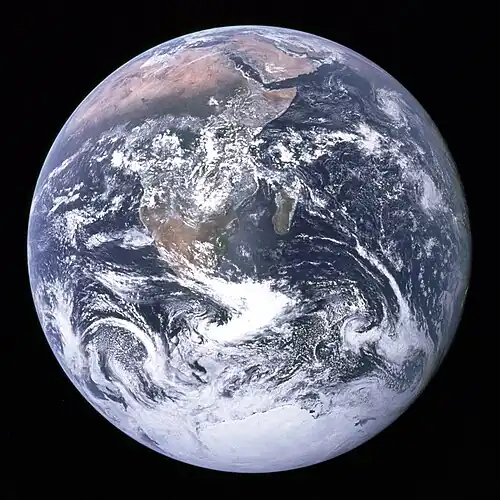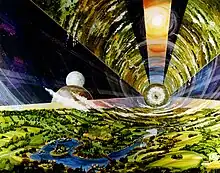Planetary chauvinism
Planetary chauvinism is the belief that human society will always be planet-based (even if extended beyond Earth), and overlooks or ignores the potential benefits of space-based living.[1] The idea can be extended to alien society in general, that is, we should expect alien society to be planet based.[2] The coining of the term is often credited to Isaac Asimov, but in an interview with Bill Boggs, Asimov mentions that he heard it from Carl Sagan.[3] The counter-argument is that all the benefits of a planet can be achieved in space, usually by an O'Neill cylinder-type structure.[4]


An even narrower version of planetary chauvinism is G-star chauvinism. This is the assumption that intelligent life will always evolve in star systems similar to our own, that is, in stars of spectral class G.[5] Carl Sagan criticised this belief on the grounds that intelligent life has a greater chance of evolving on the most long lived stars. That suggests that class-M and class-K stars are more likely candidates, not only because of their lifetime, but also because they are far more numerous than class-G stars.[2]
See also
References
- Paterson, E. T. "Towards the orthomolecular environment." Jo Orthomol Psych 10 (1981): 269-283.
- Carl Sagan, Carl Sagan's Cosmic Connection: An Extraterrestrial Perspective, p. 48, Cambridge University Press, 2000 ISBN 0521783038.
- Bill Boggs. "Asimov Interview with Bill Boggs (35 minutes in)". YouTube. Archived from the original on 2021-12-15. Retrieved July 2, 2014.
- Mike Combs. "Somewhere Else Entirely". Retrieved June 3, 2016.
- Joseph A. Angelo, Encyclopedia of Space and Astronomy, p. 235, Infobase Publishing, 2014 ISBN 1438110189.